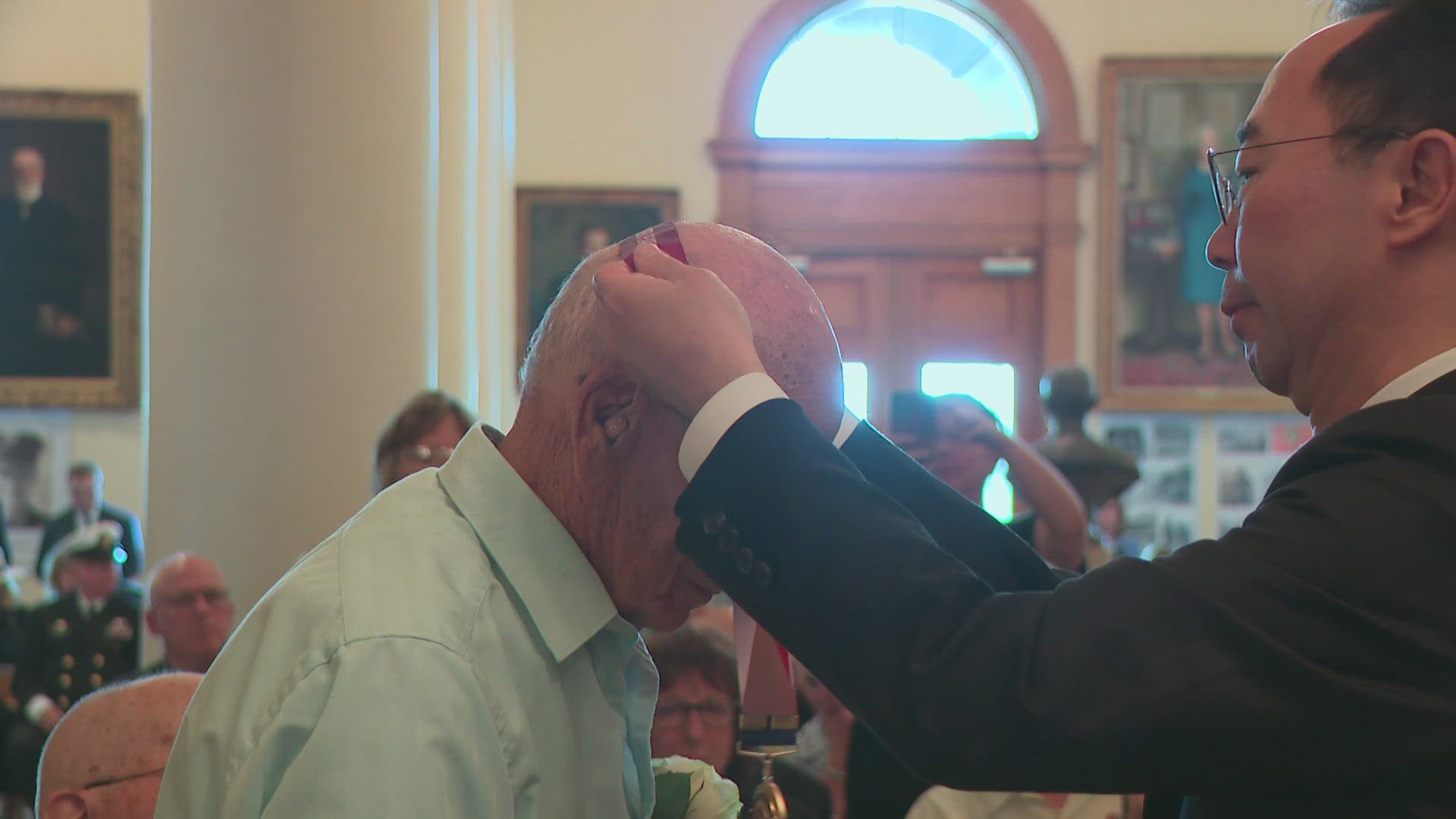AUGUSTA, Maine — George Maxim and Stanley Hodgdon have waited a long time to be honored for their service in the Korean War—71 years, to be exact.
July 27 marked the 71st anniversary of the end of the Korean War, a conflict most Americans know little about, overshadowed by the Vietnam War and World War II.
But that ignores the reality of the brutal, three-year conflict that involved more than a million American soldiers, sailors, Marines, and airmen.
"Thirty-eight thousand American troops died,” Maxim said. “That’s a lot.”
He was just 17 years old when he quit high school and enlisted in the Army before the war began. When asked if he knew what he was getting into when he signed up for the Army, Maxim shook his head.
"No, but I learned awful fast,” he joked.
Maxim became a cook for a Military Police (MP) battalion, which shipped out to Korea about six months after the war began. By that time, the U.S., South Korean, and United Nations forces had pushed the invading Communist North Korean forces back towards the Chinese border. Maxim said his battalion landed in North Korea to handle large numbers of refugees.
But not long after that, the Chinese invaded from the north.
"So our commanding officer said we’re gonna get the hell out of here or we aren’t going to," recalled Maxim.
Stanley Hodgdon was a few years older when he joined the Air Force after the war had started. He trained as an engine mechanic for C-47 transport airplanes and was sent to Korea to be part of the crew for a shuttle service between Korea and Japan.
"I was on flying status, but wasn’t a pilot or anything," Hodgdon explained. "We had three planes that took turns flying between Korea and Japan, back and forth...steady. A big general might come up and we would fly him up to the front lines," he said.
Both veterans still have strong memories of those days in the war, especially the bitterly cold Korean winters, for which the troops were not properly equipped.
"It was so cold and there was so much snow; some guys were standing in foxholes and freezing to death," Hodgdon said.
The cold and the battlefield claimed many lives. Roughly 38,000 Americans died in the Korean War, including 242 from Maine.
After the armistice was signed in 1953, both men returned home and went back to civilian life. Maxim worked in a variety of shoe factories and eventually found long-term work as a school bus driver.
Hodgdon said he lobstered for a bit, then became a store owner and postmaster for Trevett and Barters Island.
But like most other Korean War veterans, they were not celebrated for their part in that war. Korea came to be regarded as the "forgotten war."
The state Bureau of Veterans Services has held events to honor veterans of World War II and Vietnam and has held ceremonies to welcome home those who served in Iraq and Afghanistan as well.
On July 26, one day before the actual 71st anniversary date, Maine honored the vets from Korea.
During a ceremony in the State House Hall of Flags, Maine’s Adjutant General Diane Dunn paid tribute to Korean War veterans, as students from a Korean language school sang the Korean national anthem.
The Korean Consul General from Boston spoke to the crowd, bowing to the 15 veterans and 34 families of deceased veterans as an act of respect.
"Your husbands, brothers, fathers, and grandfathers faced unimaginable challenges and made terrible sacrifices on the front lines," he told the families. "It is the greatest honor for me and all Korean people standing in front of you. I cannot express enough thanks and respect with any words, except to say thank you," he said.
With that, the diplomat stepped in front of the podium and, along with his wife, bowed deeply to the families and the 15 veterans who sat before him.
He then went to each veteran, shook hands, and presented a medal from the government of South Korea, along with a plaque and certificates from the State of Maine.
Stanley Hodgdon and George Maxim both received their awards along with the rest. Both said it was something they never expected, but agreed that so many years later, the recognition was a welcome gesture of gratitude for their service.
"You know, I wasn’t a fighting soldier," Maxim said, "but I think about a lot of the guys that didn’t make it. Thirty-eight thousand didn’t come home and I think about those guys a lot," he said.
On this day, Mainers were thinking about them, too.

